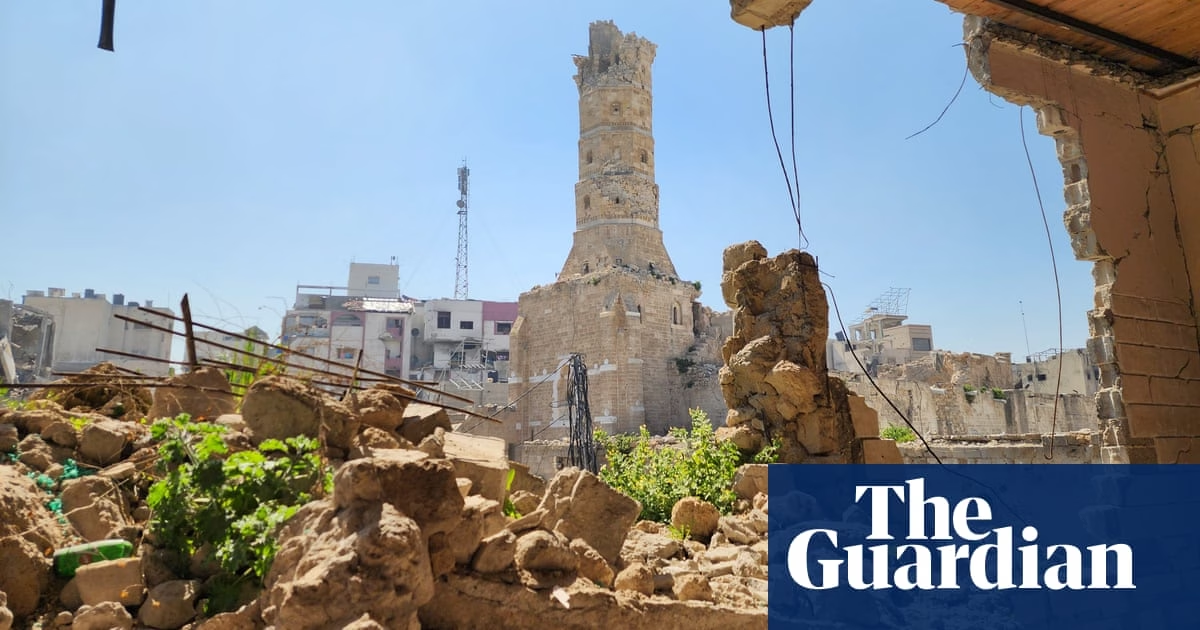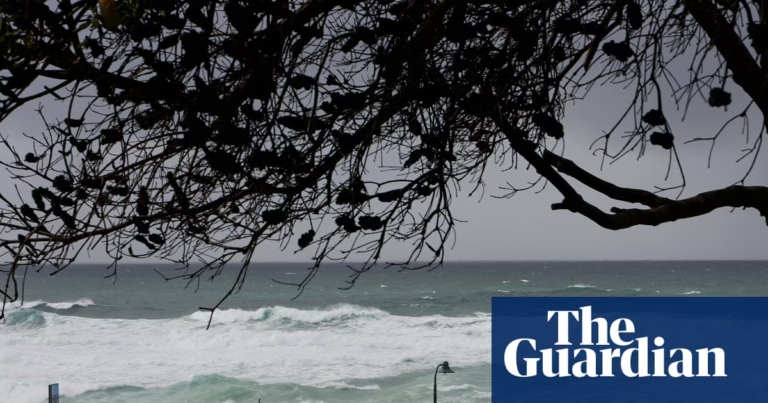Hamouda al-Dahda stands in the remnants of the Pasha Palace in
“The palace was akin to a small paradise on Earth. Now, there is no life here. Anyone who comes is filled with sadness, they remember what it once was,” says the 40-year-old museum director.
Little remains of the palace – once a mansion and fortress during Mamluk and Ottoman rule, and where Napoleon Bonaparte once stayed. Israeli bombardment and fighting in late 2023 and early 2024 left only sections of walls and an arch standing; nearly nothing remains of the museum.
For Dahda, the loss is personal. He stayed behind when war broke out, choosing not to flee like hundreds of thousands to the south of Gaza. In December 2023, he and his family were nearby when a huge explosion occurred.
“All my close family members were pulled from the rubble injured, except for my 12-year-old daughter, Mervat. She was brought out lifeless. May God have mercy on her,” he shares.
Photo: Getty Images
Pasha Palace is one of many heritage sites destroyed or severely damaged in the Gaza conflict, triggered by a surprise Hamas raid in October 2023. The Israeli response has left Gaza devastated, with fewer than a tenth of homes untouched and essential infrastructure in ruins.
Palestinian experts and British archaeologists estimate that more than two-thirds of the heritage, cultural, and archaeological sites in Gaza have been damaged. Many of these damages occurred through targeted attacks by Israeli forces, which could be war crimes.
Wazir, the 74-year-old guardian of Hamam al-Samara, spent the war displaced and returned after the conflict to find the historic bath house nearly destroyed. He views the loss as a personal and collective tragedy, a loss of family history and Gaza’s cultural heritage.
Conservation experts report that safeguarding and reconstructing the destroyed heritage sites in Gaza could cost millions of dollars and require years of effort.
Proposed reconstructions of Gaza often overlook historical preservation. While some suggest plans akin to Dubai’s modern developments, many Gazans advocate for the restoration and protection of historical landmarks like the Hamam al-Samara bath house and the al-Omari mosque, the oldest and largest mosque in Gaza.
Historians emphasize the cultural wealth still at stake, pointing to ancient Roman and Greek remains, historical cemeteries, and sites such as the al-Omari mosque, which has significance as both a Byzantine church and a mosque.
The al-Omari mosque, with its iconic Mamluk-era wooden pulpit, remains a symbol of hope for reconstruction. Even though much of the mosque’s structure has been lost, advocates like Tarek Haniya, a lifelong guide, are steadfast in their efforts to rebuild and restore the mosque to its former glory.
“We will rebuild it,” Haniya asserts. The team is already at work, collecting the broken stones of the mosque to restore it as soon as possible.







